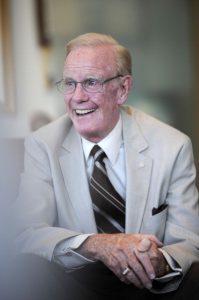Here’s a trick question: what do Pablo Picasso, Aretha Franklin, and Prince have in common?
All were great artists in their own right, and each had a fair degree of ‘business smarts’ as they built their unique artistry. They were all icons in their fields, and worth hundreds of millions of dollars. But they also shared something less positive: they all died without a proper will or an estate plan in place. They were highly accomplished in creating both their art and the wealth that came with it. But they were less successful at planning their estates and preserving their assets for the families and loved ones they left behind.
Picasso died at age 91, Aretha at 76, and Prince at 57. They may not have expected death was imminent – especially Prince. But they were smart enough (and with sufficient wealth) to know that proper planning could preserve their assets and reduce potential conflict for their heirs after they were gone.
That didn’t happen. The Associated Press describes Prince’s death as creating one of the most complicated court proceedings in Minnesota history. Aretha left two wills when she died in 2018, and the family continues its court fight more than three years later. Picasso didn’t leave a will at all in 1973. It took six years (and a cost of $30 million) to settle his estate and divide his holdings.
 How do business families differ?
How do business families differ?
A focus on business stewardship
Many artists are smart business people. Prince was as savvy an entrepreneur as they come. But the artist’s legacy is primarily that – artistic. While they may want to preserve their wealth and artistry after their death, the concept of ‘stewarding’ their business isn’t front and centre. They just don’t think this way. When estate planning does occur, it’s mostly about covering taxes and determining who gets what. It’s not about ensuring continued business growth for future generations.
In our experience, business families think differently and more broadly. Yes, they’re still concerned about taxes and who gets what. But founders and principals are also focused on stewarding the business they’ve spent many years building – and ensuring it endures (and grows) long after they’re gone.
There are several reasons for this:
- The future of both the family and the business depends on it. The children of many founders are already playing key roles in the business. Business success – and that of the family – are inextricably linked. Often, the founder’s worst nightmare is that the business doesn’t endure – and that the family is fractured along with it. While the creative artist’s output ends with them (nothing “new” gets created), the work of the entrepreneur can keep growing. The beauty of their financial capital is that it can keep “creating” in a compound way – one that continues to grow long after the entrepreneur is gone.
- Consumers/businesses depend on it. The business may well play a crucial role in the local, national or international economy. The business founder is justifiably proud of this accomplishment and doesn’t want it diminished after death. They are true “builders,” both during their lifetime and beyond.
- Employees depend on it too. Many successful business families employ thousands of people. These employees depend on the future success of the business for their livelihood. Many business owners feel a strong responsibility to the employees who have contributed to the business’ success.
However, even with this need for business stewardship, business families can be as much at risk as the artists who die without an estate plan. That’s because the most common obstacles to good estate planning among accomplished individuals are universal.
Two key obstacles are as follows:
- A natural focus on creation, not preservation. Whether you’re the founder your own accomplished business or build your own unique sound like Prince or Aretha, you’re passionate about what you do and strive to create a bigger and better future. Your focus is on constant growth – to keep creating and building. To keep the momentum churning. Your natural inclination isn’t to become consumed with preserving what you have. ‘Stewardship’ might sound like a good idea conceptually, but it’s not what gets you out of bed every morning.
- A blind spot to mortality. There’s little fun in planning your post-death affairs. Building and growing a business, creating music people love – that’s the fun part. When “builders” think about estate planning, it’s not surprising that their energy drops or their interest lags. It’s not how they’re “wired.”
Estate success for business families?
Think like Ted Rogers.
 We wrote a few weeks ago about Ted Rogers, the Canadian business icon, and his penchant for planning. You can read more about his strategic use of corporate-owned life insurance here. Rogers was a true champion of estate planning because he integrated it into everything he did. He often talked about running two businesses:
We wrote a few weeks ago about Ted Rogers, the Canadian business icon, and his penchant for planning. You can read more about his strategic use of corporate-owned life insurance here. Rogers was a true champion of estate planning because he integrated it into everything he did. He often talked about running two businesses:
- The business of the business (growing his company – playing “offense.”)
- The business of the family (preserving what he had built; playing “defense” so that future generations of the Rogers family could continue what he had grown.)
Ted’s telecommunications and broadcasting business was always in lock step with his family enterprise. When he made changes to one, he would update the other as needed. Estate planning was a continuous process. Just as his desire for business growth was never done, neither was his estate plan. He integrated it seamlessly into his business decisions and actions.
Most of all, Rogers avoided the mistakes common to many creative artists like Picasso, Aretha and Prince – and the messy complications they left behind. Ted played both offense and defense.
With this in mind, here are three questions to consider:
- Are you and your advisors paying enough attention to the ‘business of the family’ and your stewardship?
- Have you integrated estate planning considerations into your business?
- What would the future look like for your business (and family) if you were no longer here?
Paul Russell is a Toronto freelance writer.
